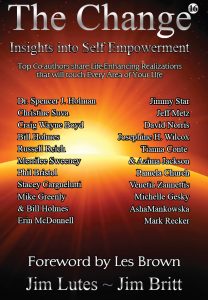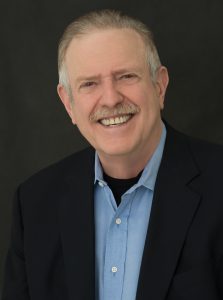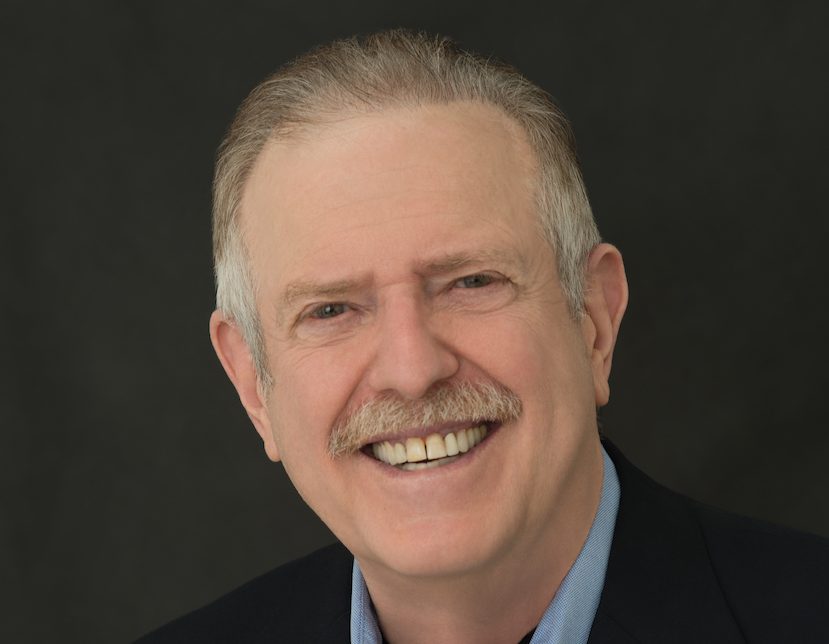I’ve enjoyed staying aware of Mike Greenly, a highly respected writer I’ve known about for years and even interviewed in the past. Having recently read about some of his newest projects, I decided to capture the story of the widely praised support he gives to executive clients.
Greenly has found his purpose in life. Once a top marketing and communications exec for Avon Products – becoming the youngest VP in its history when Avon was the world’s largest beauty company – Greenly is now a “secret weapon” for effective sales meetings, product launches and individual speeches by clients across many industries.
He also enjoys being something of a “marketing geek”, as he puts it – having been a writer and then brand manager at Lever Brothers, in highly competitive categories like detergents and toothpaste where savvy marketing is crucial. He left Lever for Avon with a culture he considered more motivational and people-focused. Obviously, the fit was a good one and led to his becoming an Officer.
When Greenly left corporate life, using his accumulated knowledge and experience to help other executives’ careers, he adopted his own version of the 100% Avon Guarantee. “I never accept assignments unless I know I can delight my clients,” he says. “My goal for every one of them – whether writing a speech, creating PowerPoints or coaching more effective delivery on-stage – is to help each of them sound like themselves … only better!”
When companies hire Greenly to help an entire team with product launches or sales meetings, he captures each individual’s voice and message, while making their separate presentations fit together like a solved jigsaw puzzle. His goal is always to drive home the client’s intended message in a convincing and memorable way.
“I’ve known Mike and his work for over 15 years,” says John McDonnell, Managing Director International, Tito’s Handmade Vodka. “He’s excellent at speeches, scripts, PowerPoints and speech coaching. Highest recommendation.”
Greenly loves using his affinity with words to make a positive difference in the world. He keeps that goal in mind whether helping his clients be more effective in business or using his talent for words to affect people’s hearts through his lyrics. His most recent song is “Common Ground” – written with Gil Polk and English singer, Sam Stevens. Stevens has recorded the song in several versions and it’s also now available as Dance Club remixes by such globally famous DJ’s as Tony Moran.

Recently, Greenly was Guest Speaker for the Irish Business Organization of New York – sharing at no charge some of the tips he learned in overcoming his own initial stage fright so as to comfortably deliver successful presentations at Avon. The talk was a major success. As observed by Nicholas Malito – President, IBO New York: “Mike’s an outstanding writer and speech coach. We were impressed by his talk about presentation skills and the valuable insights he shared.”
Greenly has further hared his knowledge via four chapters in The CHANGE self-empowerment book series. In volume 8, he describes his transformation from stage fright to now being able to speak comfortably to even an audience of 5,000 people … experience that helps him coach his clients to achieve greater effectiveness on stage. His chapters in volumes 14, 15 and 16 provide guidance on writing a speech, writing song lyrics and making personal sales calls. The latter includes breakthrough research by revered author and creativity expert, Ned Herrmann, on the quadrants of the human brain. Greenly has used this learning in guest speeches and communications workshops for execs at ExxonMobil, Patròn Spirits, Roche Pharmaceuticals and more.

Greenly has also used his talents to raise funds for worthy causes. His songs have contributed many thousands of dollars to organizations including the American Human Association, the Alzheimer’s Foundation of America, the CJD Foundation, the Rottweiler Foundation and more. He also arranged for a book-signing event (vol. 16 of The CHANGE) in New York on March 30 to benefit Broadway Cares/Equity Fights AIDS.
Here’s how Greenly achieves the results he’s now known for with the companies and executives who hire him. “I interview my clients the way a journalist interviews a subject. In the process, I help them get in touch with the core of who they are and the message they want to deliver. The result each time is a speech that is personally authentic to the executive and his/her mission … which makes the message more effective and impactful to an audience.”
Said ExxonMobil’s Ann Juranek, “Mike is a true expert. First in developing presentations that wonderfully achieve their objectives, and then in coaching delivery that makes his clients the winners they want to be.”
Though Greenly admits he “can barely change a light bulb,” it seems he has always had an affinity for words. He still remembers the first poem he composed at the age of four and – unusual, in his home town congregation in Beaufort, South Carolina — he wrote his own Bar Mitzvah speech instead of having the Rabbi write it for him.
“Eventually I went to Duke University. So I’m a real Southerner by birth and upbringing. But I’m also Jewish which made me ‘different’ – especially back then. I actually had classmates ask, in all seriousness, if I had been born with a Devil’s tail.
“Being Jewish in the Deep South, I heard the phrase, ‘Dirty Jew Boy’ more than once and had swastikas carved into my locker. My own family pharmacist once asked a customer, right in front of me, ‘Did you Jew someone down to get a lower price?’ That hurt but … what could I do?”
That Jewish experience in the South helped to shape who Greenly became. As painful as it was, he’s grateful that it made him a more compassionate person and more accepting of diversity in others – a major theme of his song, “Common Ground.”
Greenly’s youthful isolation went further than just the religion into which he was born. He became even more of an outsider when he was chosen to skip the second grade. Now he was “different” in yet another way: he was a year younger than all his classmates. Being “different” motivated him to learn how to fit in — almost too much so.
“When I went to high school, I was determined to become popular and, indeed, I was voted ‘Most Popular’ as a senior. The problem was, that popular persona was not the real me … just the identity I’d invented to hide behind.
“In college on a scholarship to Duke, I was called into the Dean’s office and was told, I would lose that financial support because my grades were only average instead of meeting the Dean’s List requirement. They said, ‘You’re a smart guy, so why aren’t you getting better grades?’ Duke helped me to discover that my lingering anxieties from childhood were getting in the way of my studies. Thanks to their help, I got into psychotherapy, kept my scholarship and graduated Phi Beta Kappa. That therapy was a life-changing gift, which went on to become years of psychoanalysis in New York.
During his years as an executive, Greenly worked to develop the knowledge that has led him to the career and creativity he so enjoys today. He admits that it took courage to leave his corporate position and go freelance. But two books changed his life and led him to make his leap.
“Alvin Toffler’s ‘The Third Wave’ made me aware of the newly emerging Information Age. My presentation to Avon leadership about that vision caused them to buy me one of the first Apple computers. My ‘assignment’ was to report back to senior management about what we needed to do in an increasingly digital time. Another book — Gail Sheehy’s ‘Passages’ — made me realize that I was at a potential turning point in my life. The two books, and psychoanalysis, gave me the strength to take the leap of leaving corporate life behind, while helping others still within it.

The following is a Q&A discussion outlining who Mike Greenly is and how he does what he does.
Q: Do you have a format with which you can make a great speech?
MG: It’s an established fact that the human attention span is shorter than ever in our history – now shorter than that of a goldfish. So it’s essential for any client to decide on his or her #1 take-away message. What needs to be firmly planted into the listeners’ minds? This principle holds true for any speech, video, PowerPoint presentation or whatever else I write – even songs. What is the North Star message that guides everything else?”
Q: When do you stay on script in a speech or veer off?
MG: Many of my clients are in highly regulated industries – pharmaceuticals, beverage alcohol, finance, etc. Lawyers must review and approve every scripted word.
Even in those cultures, it’s understood that a presenter can choose to make a spontaneous, in-the-moment comment to the audience … while never including new facts or direction not already reviewed by lawyers.
For some clients, I write a complete, word-for-word script to begin with. Then, once Legal has approved, I’ll convert the text to “bullet points” to allow a more informal and conversational speaking style.
But again – deviations and ad libs must never distract from the primary take-away message of any communication.
Q: Are there certain givens you can or will employ depending on the executive’s background?
MG: I should mention that some speechwriters I know keep re-cycling material they’ve kept “on the shelf.” Not I. I never do “cookie cutter” work. Everything is custom-created for each individual client or team.
One of the most uniquely successful presentations I ever wrote was decades ago, for the CEO of DuPont to his senior global management. He was a brilliant thinker and leader but, given the motivational needs of the occasion, I got him to tell a “bedtime” story to the hundreds of execs in his audience. He wore pajamas and a bathrobe, sitting in a wing chair on-stage, like a loving grandfather. The execs were served milk and cookies for the end-of-day message. I got tremendous positive feedback about the “fable” I wrote with a moral (about teamwork) and the impact it had on its audience.
The only “given” is my need to help each presentation convey a desired message in a way that suits the situation. Again, my tagline expresses this: “Sound like yourself … only better.” My clients say they can feel that in my work.
While my #1 skill has to be writing, of course, I know that my ability to ask the right questions is also crucial to delivering the right results.
Q: To achieve what you want to find for yourself are you as much a life coach as a writer?
MG: I’m not really a “life” coach – even though I was in training to become a full-time psychotherapist when Avon made me a VP. But I am definitely a communications coach; that is my expertise.
I do know that my interactions with my clients are always personal. Real. Authentic. Even intimate. And I’ll admit that, given my decades of corporate experience and my work with many hundreds of presenters, clients sometimes (always privately) turn to me for advice based on my life experience.
A few agencies I know only want to have attractive 30-year-olds representing them in competitive pitches. But the client execs, themselves, readily understand that my decades on their side of the desk offer experience that a younger person won’t yet have had time to gain.
Q: From one speech, has there ever come a series and even brochures, pamphlets or whole career course work?
MG: One major pharma exec – for whom I’d written and coached his delivery for years – called me in near-panic. He was about to give the most important speech of his lifetime, he said: to the House of Representatives in Washington, DC. He said he’d been learning from my verbal feedback but that it would help him if I’d write my guidance down on paper. I did – creating a special Presentation Tips document. My client later said it was so helpful, it enabled him to experience a “triumph” in front of Congress. I often share that document with the clients I coach.
It also eventually became the basis for some of what I offered in vol. 8 of The CHANGE book series. I’ve also used its content while leading Presentation Skills workshops or as a guest speaker on that topic. From pharma clients to Metz Culinary Management, the “basics” of being effective in front of an audience don’t change from one industry to the next.
Q: When crafting a great speech how personal do you get?
MG: I’ve learned an important lesson: when an exec allows him- or herself to be personal, the message has significantly greater resonance. Specifically, I remember – over 20 years ago – helping a pharma exec with her speech.
Her message was feeling “muddy” until I got her to share a relevant memory from having been a Girl Scout. All of a sudden, with that anecdote included in her speech, the ideas she was passionate about came to life in a more human and relatable way. Later she thanked me for nudging her outside her comfort zone.
The simple fact is: not once have I had a client regret sharing something personal that fit the context of a presentation. Another example: a different pharma exec shared his own medical condition and family history when launching a product that could make a difference for similar patients. Afterward, he praised it as one of the best speeches I’d ever written for him. It wouldn’t have been the same if he’d not been willing to be personal in his remarks for the product launch.
Q: How spiritual do you get?
MG: Most of the organizations that hire me have zero interest in being “spiritual.” Talk about values? Yes, absolutely. Along with making a positive difference to the world.
But clients – rightly, in my opinion – tend to avoid spirituality, religion and even, for the most part, politics.
The goal is to unite an audience behind a common point of view, never to divide or segment. Personal history is one thing, as I mentioned with your previous question. But while there are, indeed, rare exceptions depending on context, spirituality is generally too private and personal for most situations.
Q: How often do you employ macro ideas in the presentations you create?
MG: Analogies can be useful. And in some situations, big-picture metaphors can be helpful. In general, though, every presentation I create is focused squarely on the client’s message … about a product, reorganization, employee policy, whatever. The wrong macro idea or metaphor, superimposed onto a message, can become a distraction if it’s not truly relevant.
My client is always the subject matter expert. I’m only the communications expert who helps a desired message get across in the best and most vivid way.
Contact Mike Greenly by visiting https://www.mikegreenly.com

